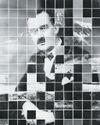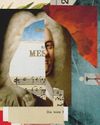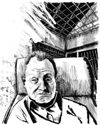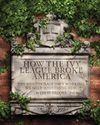
Among the pedestaled titans of Western music, George Frideric Handel was the first composer whose work not only quickly became celebrated in his own time but has been heralded ever since. Before Handel, no real "repertoire" of enduring music had existed. Composers were considered craftsmen in an evanescent art, their creations regularly superseded by fresher work. Most music that got performed was relatively new. Claudio Monteverdi, the preeminent European composer of the early 17th century, was largely forgotten within decades of his death, in 1643. Johann Sebastian Bach amounted to hardly more than a cult figure after he died, in 1750, his major works unplayed well into the next century.
When Handel died, at 74 in 1759, he was already well fortified for posterity. A celebrity since his 20s, he had been the subject of grand portraits and was depicted as Orpheus in a 1738 statue in London's Vauxhall Gardens. Whereas Bach earned an unmarked grave in Leipzig and one obituary four years after he died, Handel was buried in Westminster Abbey.
Handel stands apart in another way from the musical giants who have since been rediscovered and enshrined: Each of them is renowned for an array of oftenperformed pieces. His stature is owed above all to a single work-the oratorio Messiah.
Among the towering masterpieces of Western music, the Messiah occupies a distinctive place: It is familiar to more people than any other work of its kind. Bach's B Minor Mass and St. Matthew Passion and Monteverdi's Vespers are comparable among supreme choral pieces, but they aren't performed at your church or the high school down the street. The Messiah often is, trotted out during the Christmas season by amateur and professional choruses around the globe. A fair percentage of the world probably knows the "Hallelujah" chorus well enough to sing along.
Denne historien er fra December 2024-utgaven av The Atlantic.
Start din 7-dagers gratis prøveperiode på Magzter GOLD for å få tilgang til tusenvis av utvalgte premiumhistorier og 9000+ magasiner og aviser.
Allerede abonnent ? Logg på
Denne historien er fra December 2024-utgaven av The Atlantic.
Start din 7-dagers gratis prøveperiode på Magzter GOLD for å få tilgang til tusenvis av utvalgte premiumhistorier og 9000+ magasiner og aviser.
Allerede abonnent? Logg på

The Dark Origins of Impressionism
How the violence and deprivation of war inspired light-filled masterpieces

The Magic Mountain Saved My Life
When I was young and adrift, Thomas Manns novel gave me a sense of purpose. Today, its vision is startlingly relevant.

The Weirdest Hit in History
How Handel's Messiah became Western music's first classic

Culture Critics
Nick Cave Wants to Be Good \"I was just a nasty little guy.\"

ONE FOR THE ROAD
What I ate growing up with the Grateful Dead

Teaching Lucy
She was a superstar of American education. Then she was blamed for the country's literacy crisis. Can Lucy Calkins reclaim her good name?

A BOXER ON DEATH ROW
Iwao Hakamada spent an unprecedented five decades awaiting execution. Each day he woke up unsure whether it would be his last.

HOW THE IVY LEAGUE BROKE AMERICA
THE MERITOCRACY ISN'T WORKING. WE NEED SOMETHING NEW.

Against Type
How Jimmy O Yang became a main character

DISPATCHES
HOW TO BUILD A PALESTINIAN STATE There's still a way.